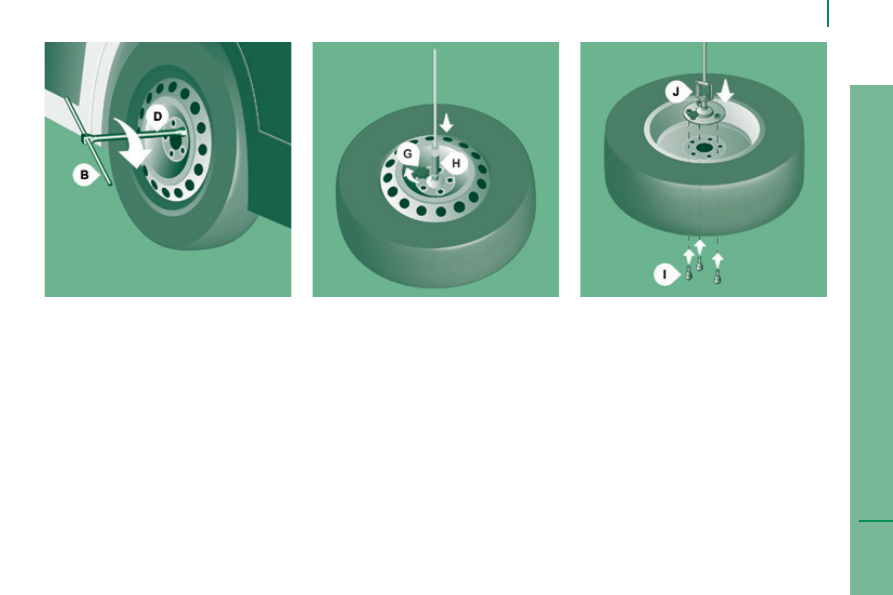Peugeot Boxer (2016 year). Manual - part 11

Puncture
159
QUICK HELP
8
boxer_en_Chap08_Aide-Rapide_ed01-2015
Fitting the spare wheel
Stowing the wheel
-
Put the spare wheel in place on the hub
and fit the bolts by hand.
-
Pre-tighen the bolts using the
wheelbrace d and the bar B.
-
Lower the vehicle completely by folding
the jack c, then remove the jack.
-
tighten the bolts again using the
wheelbrace d and the bar B (tighten
them fully without forcing them).
You must place the wheel to be repaired or
the spare wheel under the vehicle to secure
the carrier system.
-
Place the wheel at the rear of the vehicle.
● For eversions with steel wheels, hook
the carrier H on the outside.
● Screw in the grip G to secure the carrier
and wheel.
● For versions with alloy wheels, position
the strap j on the outside.
● Fit the three strap fixing screws I to the
alloy wheel.